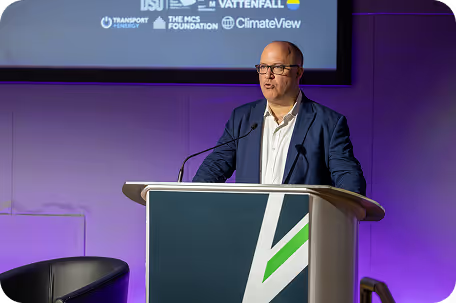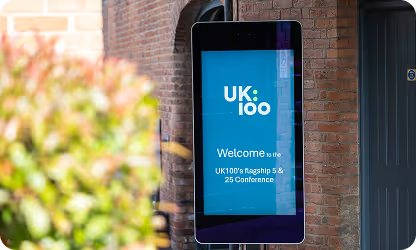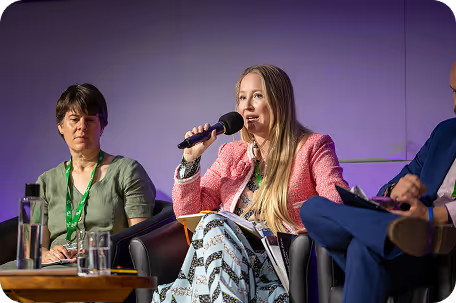Membership
UK100 is the only network of ambitious UK local councils committed to delivering climate and clean energy solutions faster, together. Since 2016 we have been at the heart of the local government response to the climate crisis, advocating for greater local powers, empowering a generation of climate leaders, and collaborating with partners to bring forward common sense solutions that deliver for both people and planet.

We co-create climate solutions
Our co-creation approach ensures that the climate solutions you develop are practical and built for success. By working together with other councils, experts, and your communities, we enable councils to lead the deliver the place based change residents want and need.
We break down national climate barriers
As a UK100 member, your voice matters. Through our member-led research and advocacy efforts, we amplify local experiences to break down national barriers and accelerate climate progress.
We empower bold climate leaders
We empower our members through cutting-edge training, knowledge sharing, and networking opportunities. Our Climate Leadership Academy and lunchtime learning webinar series equip you with the skills and confidence to lead the charge on climate action.
What are the benefits of joining?
By joining UK100 as a full member you will join an ambitious cohort of councils benefitting from our unique membership offer, including:

- Priority access to apply for our training and support programmes
- Opportunity for annual 1:1 meeting with UK100 team
- Opportunity to apply for joint funding and projects

- Priority invite to our events, including Annual Parliamentary Reception, LGA Conference dinner and more
- Connect with key stakeholders including parliamentarians and sector leading organisations
- Participate in our peer network

- Attend quarterly Lunchtime Learning webinar series
- Receive our premium monthly newsletter filled with expert tips and policy updates
- Learn with our UK100 Knowledge hub, including our online library of case studies and submit your own.

- Contribute to our Policy Advisory Group
- Priority opportunities to access, contribute and feed into our research projects, reports, consultation responses and briefings

Who are our members?
At UK100, we unite ambitious local councils across the UK to drive climate action at scale. As the only cross-party network of leaders and councils, we work with any political administrations to deliver the place based change communities want and need. Members include single-tier councils (Unitary authorities), two-tier councils (district & county councils), and combined authorities.
.svg)






